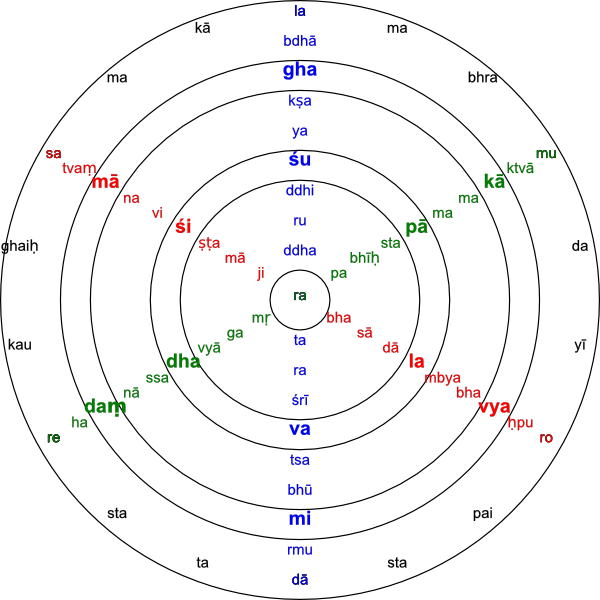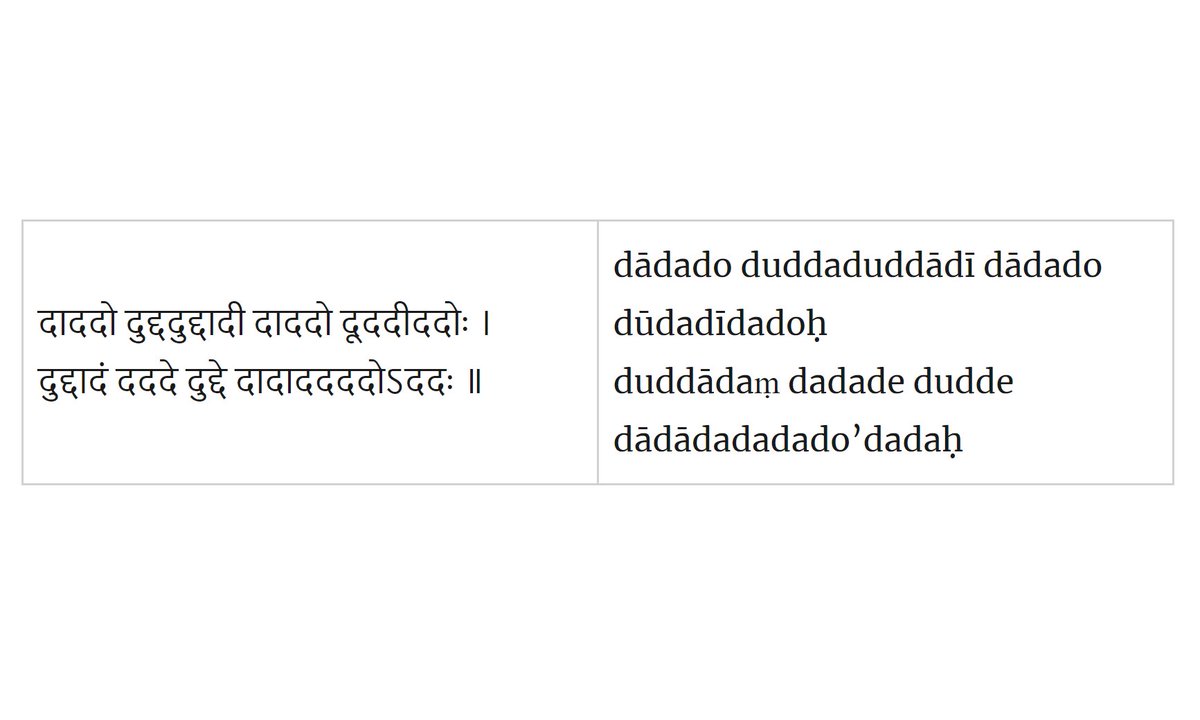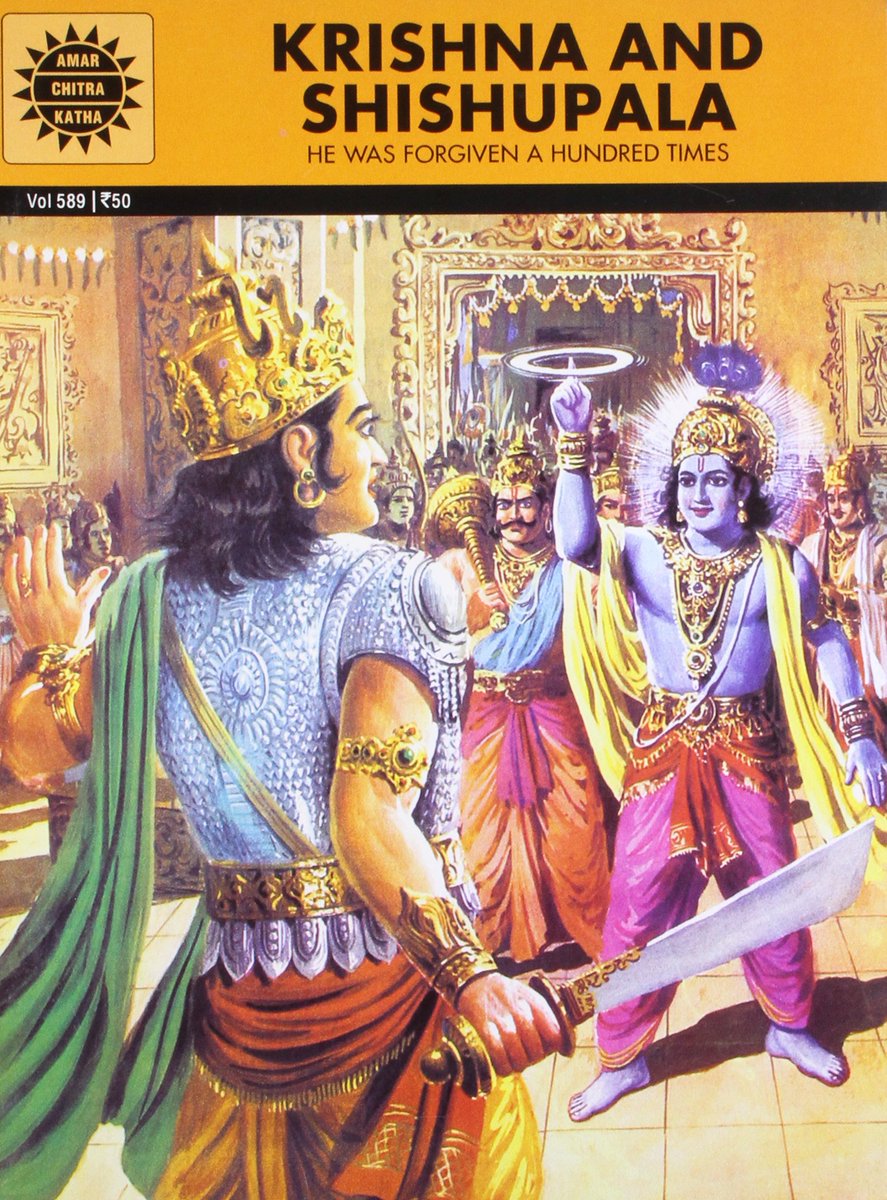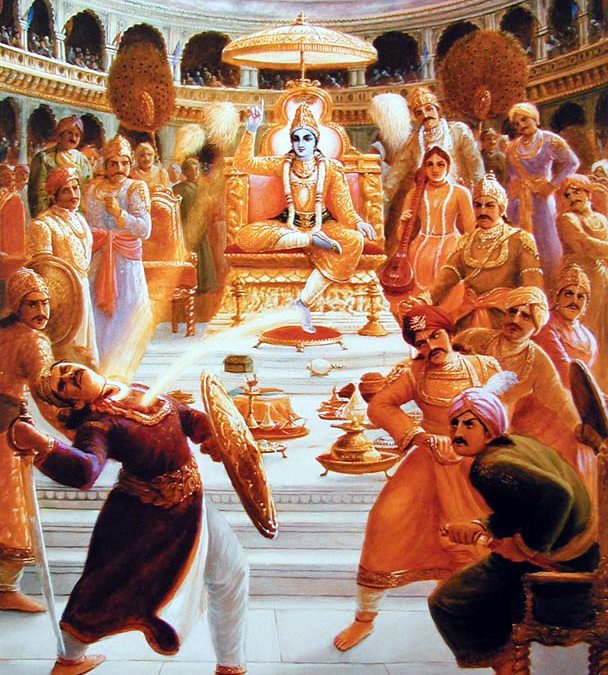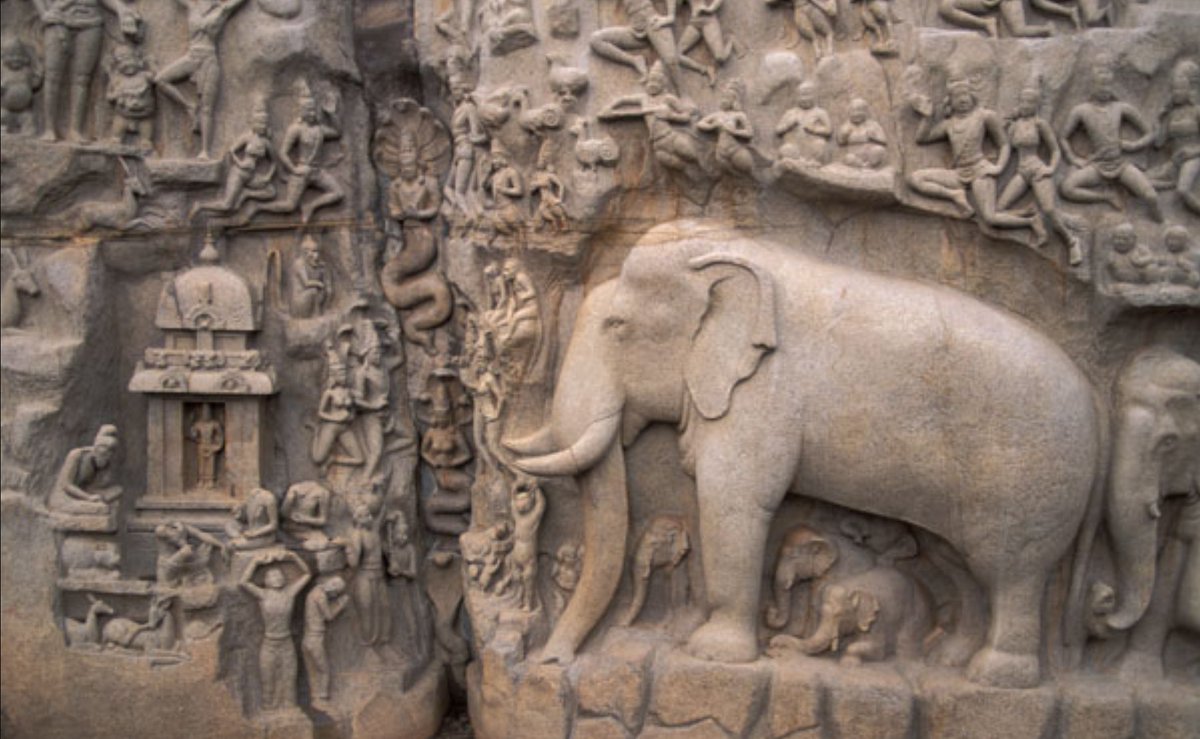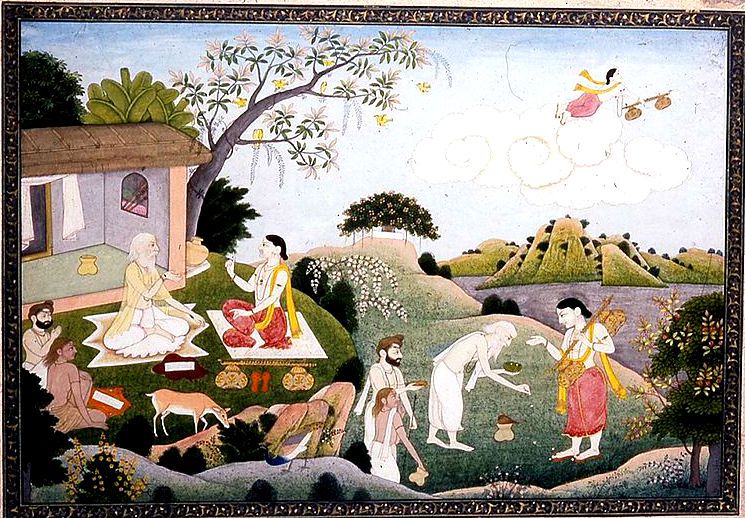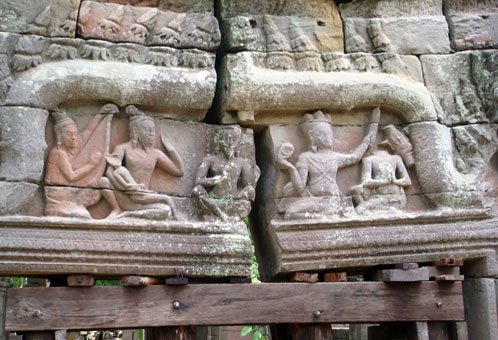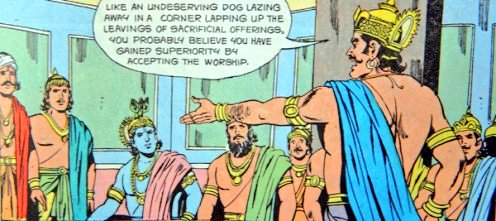I ordered this book from my library, & it finally arrived yesterday.
It might not look like much, but it feels really emotional to hold it. I& #39;ll try to explain why.
It might not look like much, but it feels really emotional to hold it. I& #39;ll try to explain why.
The Shishupala Vadha, or the Killing of Shishupala,was written in Sanskrit in the 7th century by a poet called Magha.
It tells the story of one episode of the Mahabharata, a poem of 1.8 million words. That& #39;s more than twice the length of the Bible or Shakespeare& #39;s complete works
It tells the story of one episode of the Mahabharata, a poem of 1.8 million words. That& #39;s more than twice the length of the Bible or Shakespeare& #39;s complete works
The Vadha tells one story in the life of Krishna, a divine being incarnated on earth.
Krishna learns at the beginning of the poem that his great enemy from another life, a demon, has been reborn in the form of the evil King Shishupala.
Krishna learns at the beginning of the poem that his great enemy from another life, a demon, has been reborn in the form of the evil King Shishupala.
The poem narrates how Krishna sets out to do battle with the terrible king, and defeats him.
In the Mahabharata, this happens at a feast.
In the Mahabharata, this happens at a feast.
It was long ago prophesied that Krishna would kill Shishupala. But the good Krishna promises that even if he insults him 100 times, he will not strike.
However, Shishupala grows up to be a cruel King. He forces a Princess, Rukmini, to marry him. But she is in love with Krishna.
However, Shishupala grows up to be a cruel King. He forces a Princess, Rukmini, to marry him. But she is in love with Krishna.
Rukmini sends a message to Krishna, begging him to rescue her. On the night of her wedding, he arrives in his chariot & sweeps her away.
Shishupala is maddened, & the next time he sees Krishna he hurls insult after insult at him, until finally he reaches the 100th insult.
Shishupala is maddened, & the next time he sees Krishna he hurls insult after insult at him, until finally he reaches the 100th insult.
Krishna summons his great weapon, the Sudarshana Chakra, a kind of spinning disc, & Shishupala& #39;s head is sliced from his body.
The Vadha is one greatest achievements of Sanskrit poetry.
It describes in ornate detail the lives & loves of people living in ancient India.
It describes in ornate detail the lives & loves of people living in ancient India.
It uses a typically ornate form of simile, which was considered among the highest forms of poetry for the age, to describe everything from the ocean to a mountain.
This similaic form sees everything transfigured into something else.
So Krishna& #39;s dark skin, for instance, becomes the leaves of a tree.
So Krishna& #39;s dark skin, for instance, becomes the leaves of a tree.
The Shishupala Vadha is also one of the most metrically complex poems ever constructed. Take this verse, for example.
This is a palindrome that can be read back-to-front, both horizontally and vertically.
This is a palindrome that can be read back-to-front, both horizontally and vertically.
It translates to:
“[That army], which relished battle contained allies who brought low the bodes and gaits of their various striving enemies, and in it the cries of the best of mounts contended with musical instruments.”
“[That army], which relished battle contained allies who brought low the bodes and gaits of their various striving enemies, and in it the cries of the best of mounts contended with musical instruments.”
Other verses can be rearranged to contain hidden messages when read in the form of a lightning bolt, or a drum, for instance.
This famous verse, when arranged like a wheel, has the message "This is the Shishupala Vadha, a poem by Magha" hidden in its spokes.
This famous verse, when arranged like a wheel, has the message "This is the Shishupala Vadha, a poem by Magha" hidden in its spokes.
There are also stanzas written using only one consonant, just to show off:
“Sri Krishna, the giver of every boon, the scourge of the evil-minded, the purifier, the one whose arms can annihilate the wicked who cause suffering to others, shot his pain-causing arrow at the enemy.”
“Sri Krishna, the giver of every boon, the scourge of the evil-minded, the purifier, the one whose arms can annihilate the wicked who cause suffering to others, shot his pain-causing arrow at the enemy.”
The entire 16th chapter, in which Shishupala sends a message to Krishna, can be interpreted in two ways: a humble apology, or a declaration of war:
“I am enraged by not having the chance to pay Krishna what he deserves,” Shishupala says.
“I am enraged by not having the chance to pay Krishna what he deserves,” Shishupala says.
The reason it feels so special to finally hold this book is that it has a starring role in my novel, River of Ink. My main character is charged with translating the poem for a tyrannical King.
But when I was writing River of Ink, there was no English translation of the Vadha.
But when I was writing River of Ink, there was no English translation of the Vadha.
I had to read the Shishupala Vadha in German, from the 1926 translation by philologist Eugen Hultzsch.
I learned far more vocabulary for the mating cycles of elephants than my high school German teacher had ever prepared me for.
I learned far more vocabulary for the mating cycles of elephants than my high school German teacher had ever prepared me for.
One final note that makes this feel so special is that this translation is by an Edinburgh academic called Paul Dundas.
In 2009, he got an email from a young student asking him questions about the Shishupala Vadha, with the ridiculous notion of writing a novel about it.
In 2009, he got an email from a young student asking him questions about the Shishupala Vadha, with the ridiculous notion of writing a novel about it.
He told me that he was trying to publish the book, but his publication deal had fallen through & its future was uncertain.
Still, his kindness and willingness to respond to my questions was part of the reason I kept going with the project & made it through those early stages.
Still, his kindness and willingness to respond to my questions was part of the reason I kept going with the project & made it through those early stages.
In the end, Dundas& #39; translation of the Shishupala Vadha & my own novel were published in the same year, in 2016.
So anyway that is the story of this strange & wonderful ancient poem, & its first appearance in the English language. Be sure to check out its marvels for yourself!
So anyway that is the story of this strange & wonderful ancient poem, & its first appearance in the English language. Be sure to check out its marvels for yourself!
As a last note, you can find more details on the translation here, although it& #39;s still not available to read online. https://books.google.co.uk/books?id=Tv6NDAEACAAJ&dq=paul+dundas+shishupala+vadhha&hl=en&sa=X&ved=0ahUKEwiO54eizpvZAhUkOsAKHflVAd0Q6AEIDzAB">https://books.google.co.uk/books...
Thanks for reading! If you enjoyed this, I& #39;ve gathered together some threads on other interesting historical moments & artefacts here: https://twitter.com/PaulMMCooper/status/965569818526142465">https://twitter.com/PaulMMCoo...
And you can also chip me a tip here: https://ko-fi.com/paulmmcooper ">https://ko-fi.com/paulmmcoo...
And for those asking about the novel, you can find it here: https://www.bookdepository.com/River-of-Ink-Paul-M.-M.-Cooper/9781408862292">https://www.bookdepository.com/River-of-...

 Read on Twitter
Read on Twitter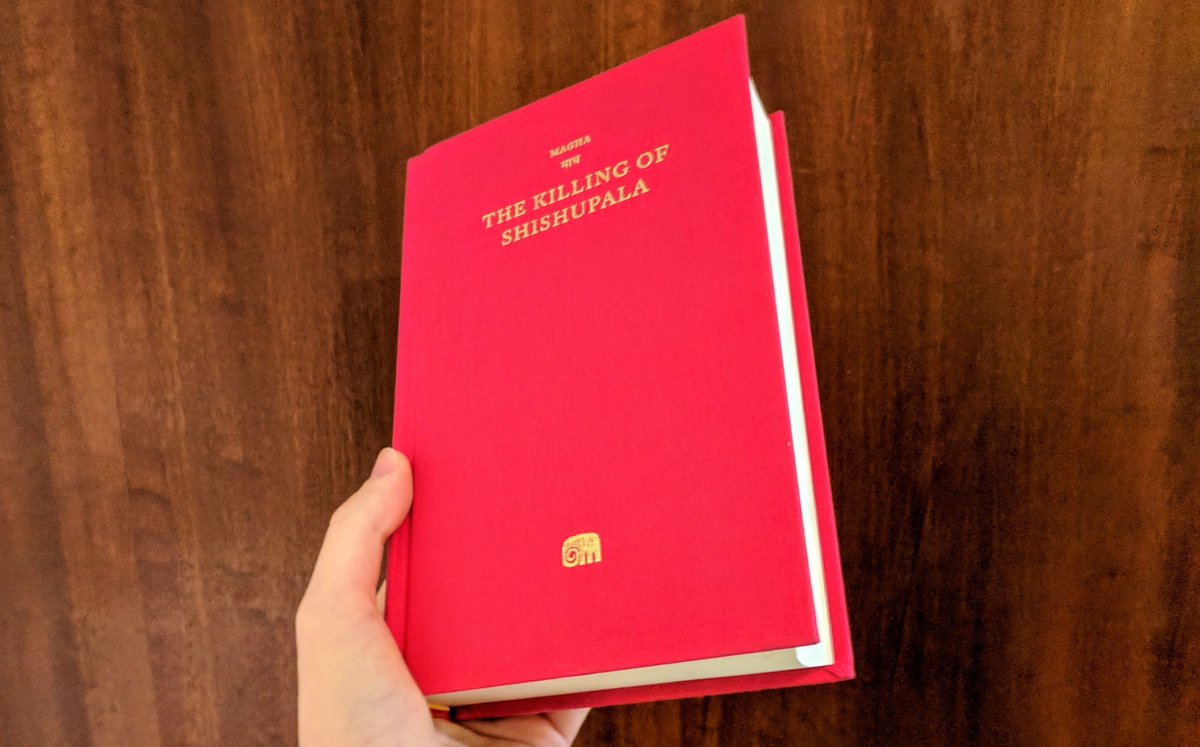
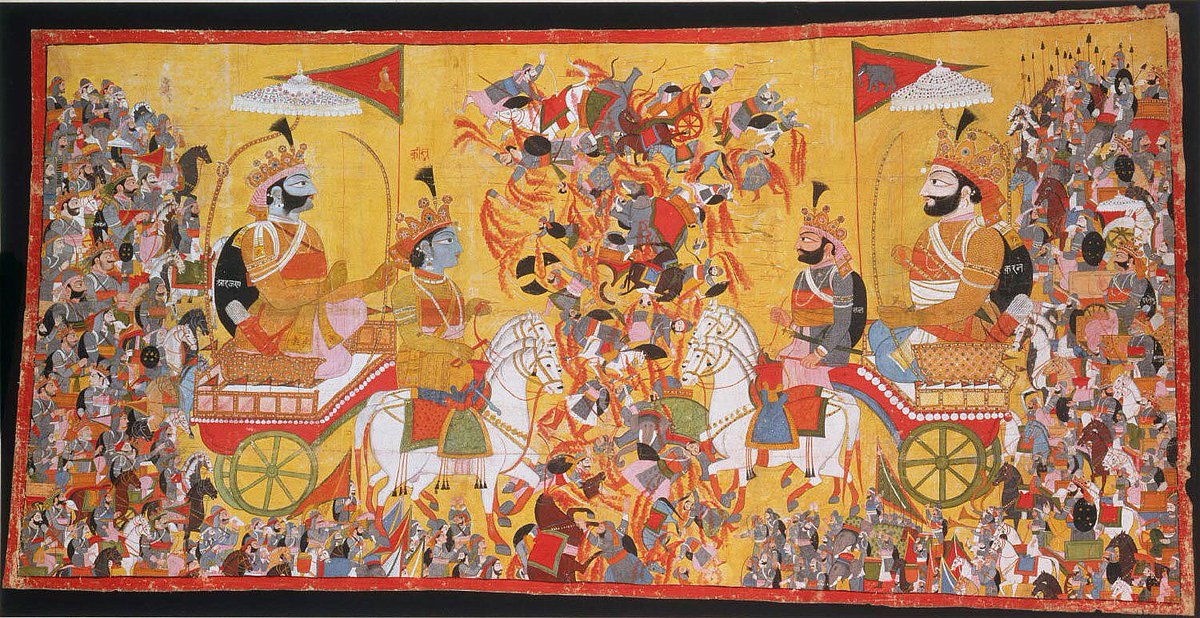
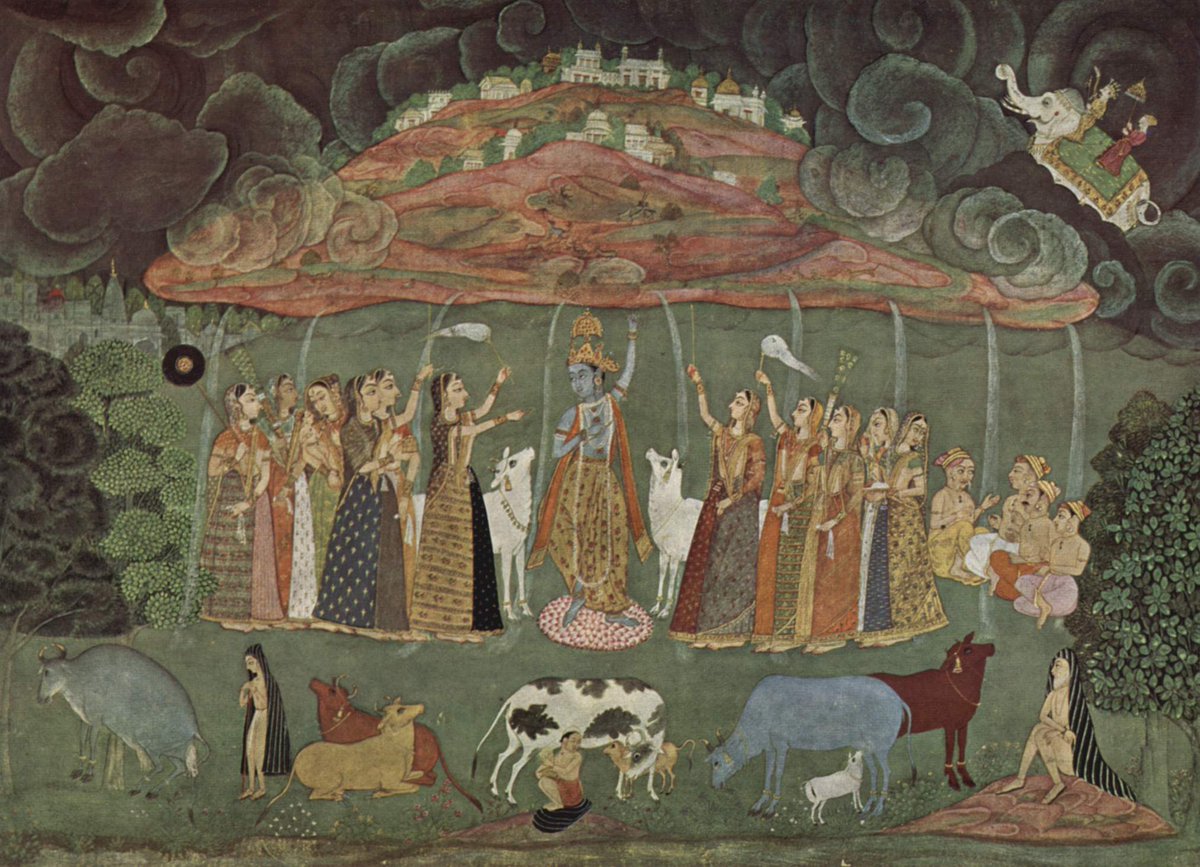
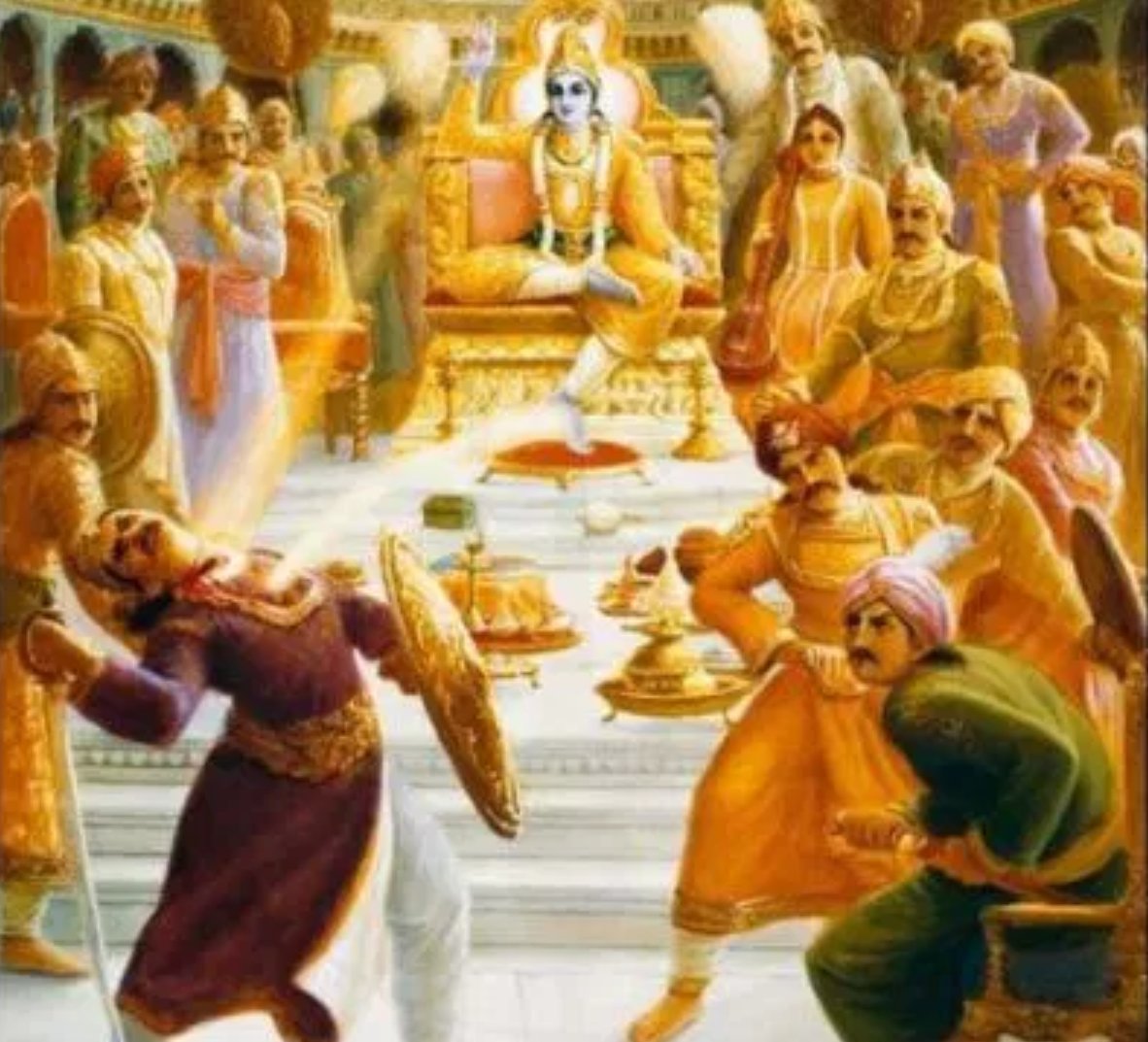
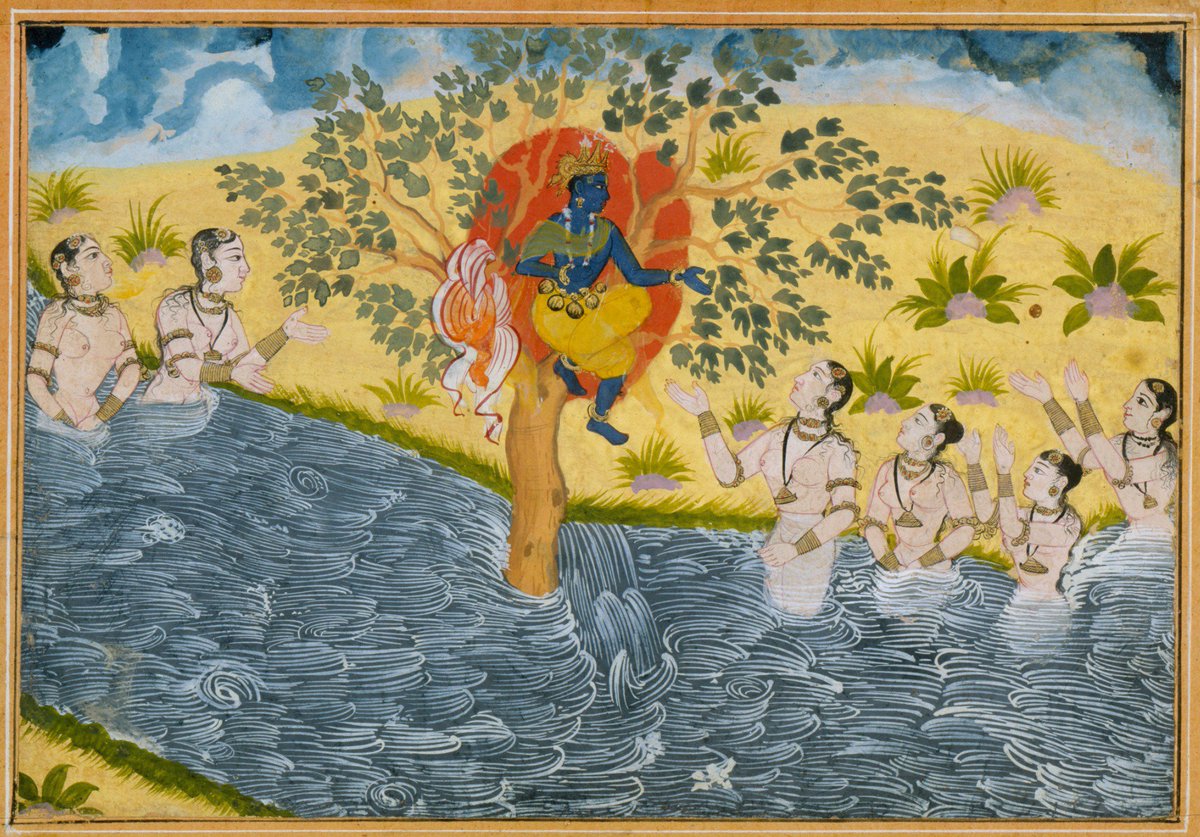
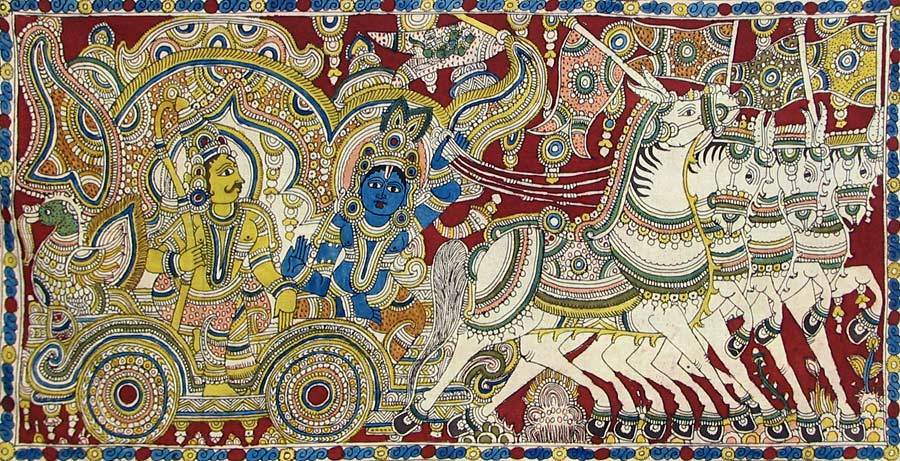
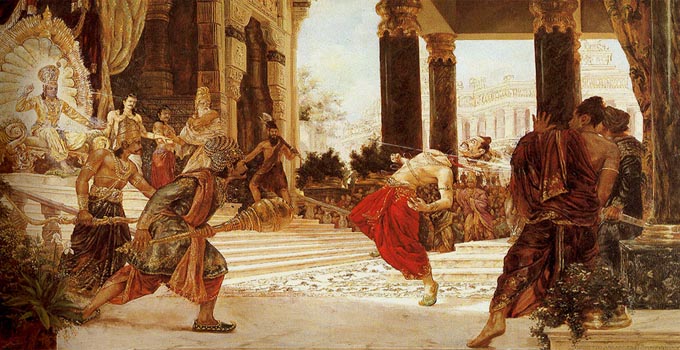
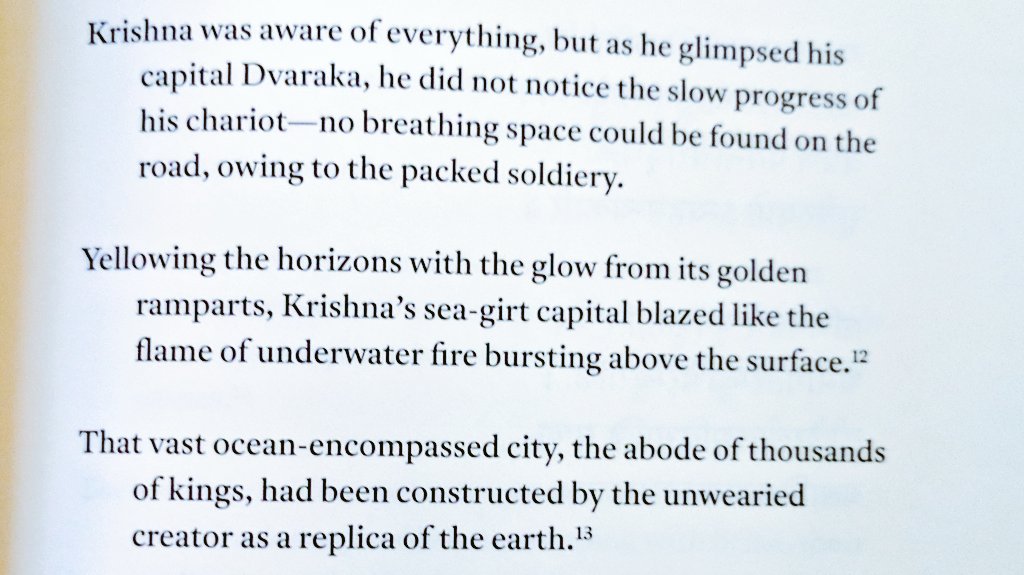
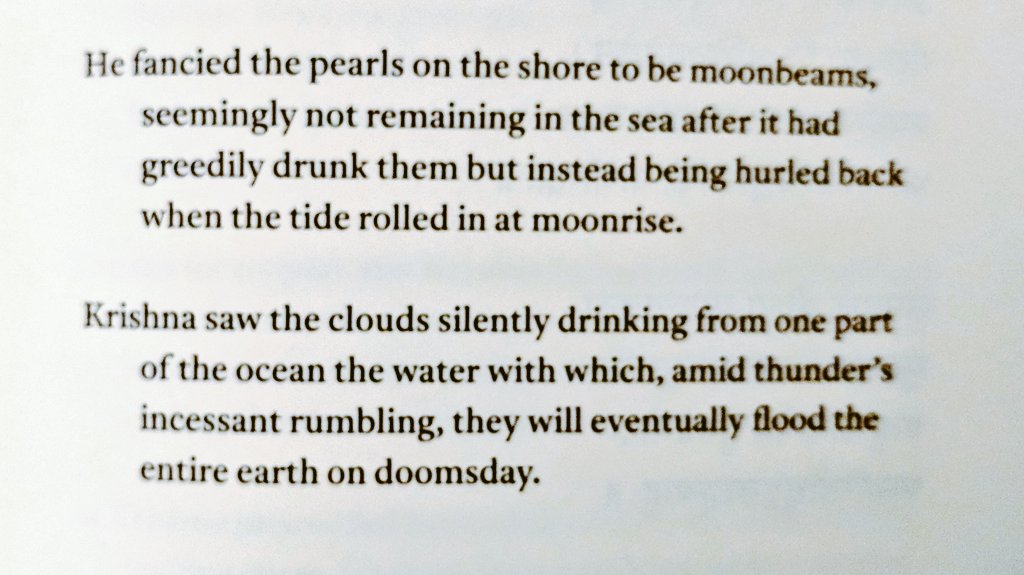
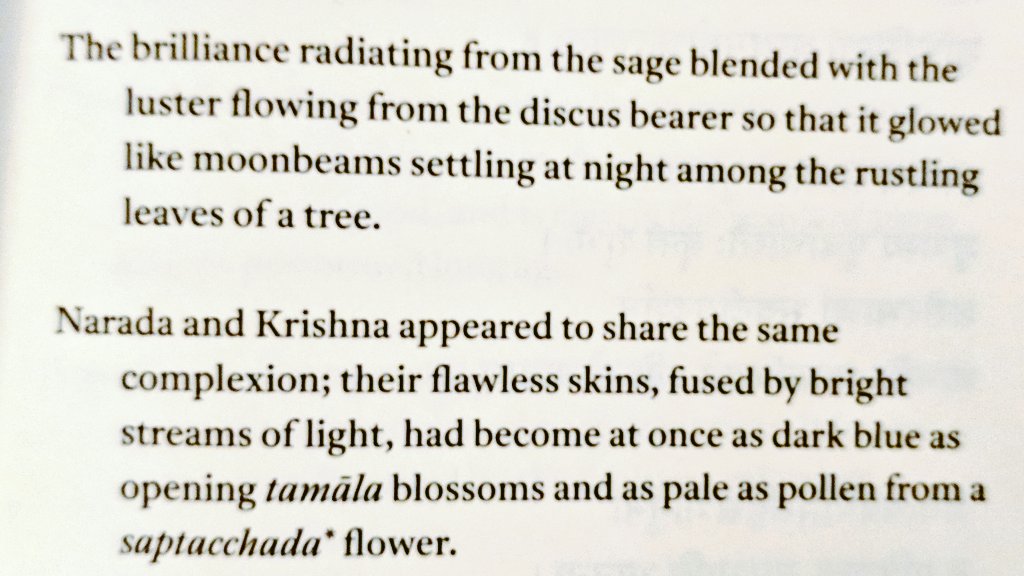
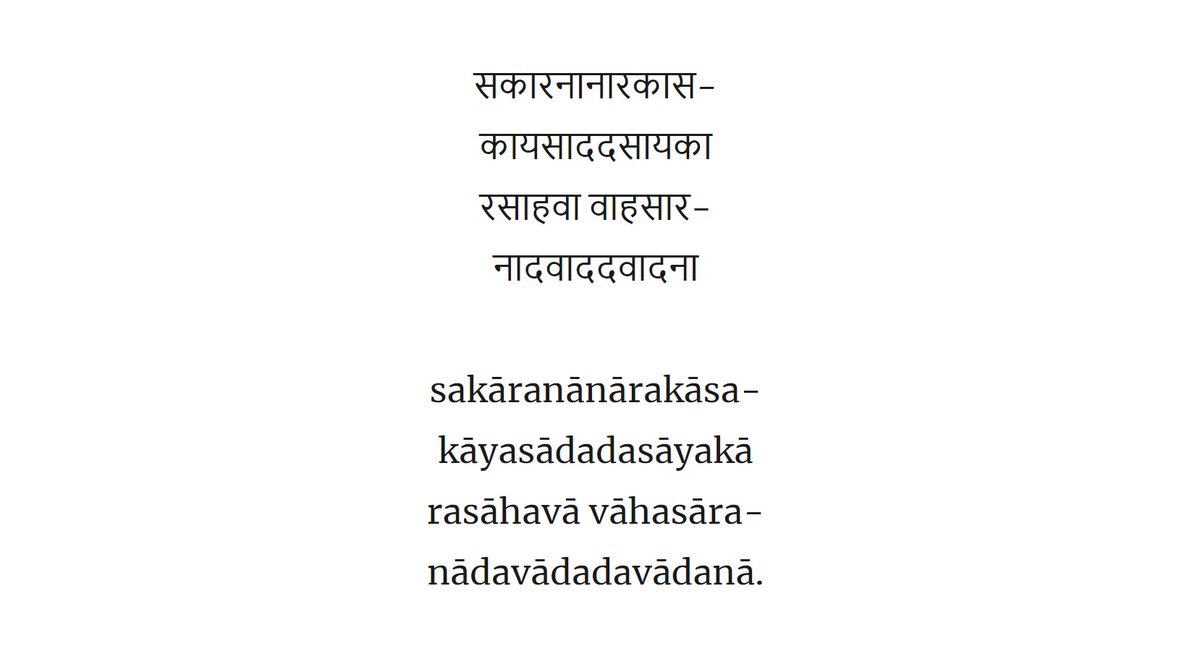
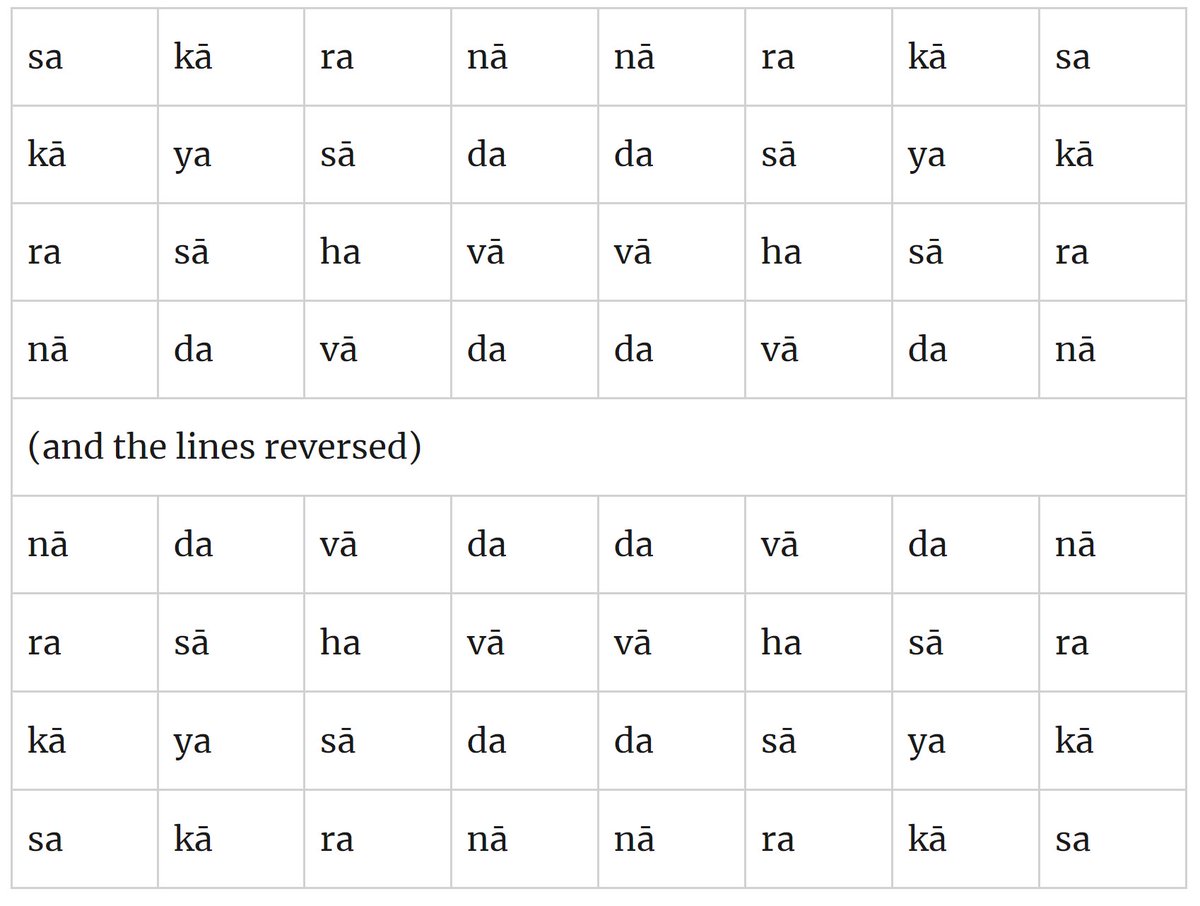
![It translates to: “[That army], which relished battle contained allies who brought low the bodes and gaits of their various striving enemies, and in it the cries of the best of mounts contended with musical instruments.” It translates to: “[That army], which relished battle contained allies who brought low the bodes and gaits of their various striving enemies, and in it the cries of the best of mounts contended with musical instruments.”](https://pbs.twimg.com/media/DVrmpi9WAAI54Bz.jpg)
